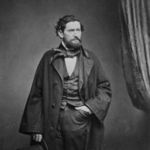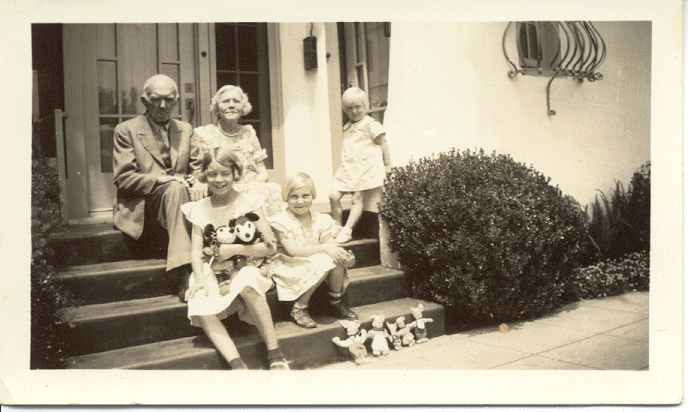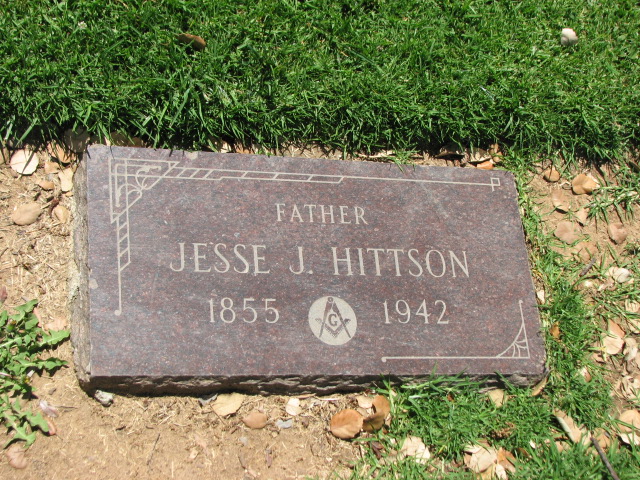The Hittson Project
Jess Hittson was born in the Hill Country of Frontier Texas, the first born son of John Nathan Hittson and Salena Frances Brown Hittson. During his lifetime of 1855-1942, his favorite pastimes were campfire stories and poker. He was a beloved "boss" to a great number of drovers who stayed with the family of stock raisers for decades.
He grew up on the open ranges of Texas with his father, John Hittson, his Uncle Bill Hittson, his cousins John Hart and James Hart, thousands of Longhorns, and Comanches. By the age of ten, he carried a Winchester .44 "Yellow-Boy." At the age of 11, he was ambushed by Comanches and survived under the rock ledges of Tecumseh Creek near Fort Cooper, Texas. At the age of 13, he branded a maverick "7-11-68 Indians Hot As Hell." At age 15 he joined the Texas Rangers and rode hard against the marauding Comanches for three years.
By the time Jess turned 18 in 1873, in his own right he could be called a "stock raiser," an "Indian fighter," a "trail boss," and he fought the "longest Indian battle in history" losing all of his cattle, horses, wagons and equipment, but none of his men nor his guns. Fighting along side the "boss' son," M.L. Johnson testified to the U.S. Senate for Indian depredations against Jesse J Hittson and his father, John Nathan Hittson, for a settlement of $14,900 in 1909.
From Panhandle Plains Historical Review of 1944: Two Circles Bar Ranch
"The Stampeded Herd"
Composed by Elizabeth Bond
Near the Double Mountains,
In the County of Stonewall
Bill Hittson owned two thousand steers
We'd gathered up that fall.
Tid Millsap and Prinkle Moore,
And other punchers, half a score,
Were standing guard that stormy night
When those cattle all took fright.
Around the herd we took our stand;
It was too dark to see your hand,
All at once the lightning flashed,
Followed by the thunder's crash.
I think the clouds all sprung a leak,
For rain and hail stones fell in sheets
All the steers threw up their horns
And fled away before the storm.
The lightning played upon their backs
As they fled in terror, track on track,
It seemed that they would never tire
As they splashed on through the rain and mire.
The fittest of the herd survived;
The weak and slow ones lost their lives.
They trampled each other in their flight,
Two hundred steers were killed that night.
Our well-trained mounts were in the race,
And with the cattle they kept pace;
Cowboys yelled 'til they were hoarse,
Trying to change them in their course.
When Prinkle Moore fired a shot,
They began to circle and finally stopped.
It ceased to rain, the storm had passed,
And they were bedded down at last.
We were soaked to the skin and a little saddle stained;
I have never seen a slicker that would keep out all the rain.
The cook kept some whiskey in the old chuck box,
That was good for snake bites and many other shocks;
And we all took a dram to dry up our tears,
That we had been shedding over losing those steers.
The Hittson Project
Jess Hittson was born in the Hill Country of Frontier Texas, the first born son of John Nathan Hittson and Salena Frances Brown Hittson. During his lifetime of 1855-1942, his favorite pastimes were campfire stories and poker. He was a beloved "boss" to a great number of drovers who stayed with the family of stock raisers for decades.
He grew up on the open ranges of Texas with his father, John Hittson, his Uncle Bill Hittson, his cousins John Hart and James Hart, thousands of Longhorns, and Comanches. By the age of ten, he carried a Winchester .44 "Yellow-Boy." At the age of 11, he was ambushed by Comanches and survived under the rock ledges of Tecumseh Creek near Fort Cooper, Texas. At the age of 13, he branded a maverick "7-11-68 Indians Hot As Hell." At age 15 he joined the Texas Rangers and rode hard against the marauding Comanches for three years.
By the time Jess turned 18 in 1873, in his own right he could be called a "stock raiser," an "Indian fighter," a "trail boss," and he fought the "longest Indian battle in history" losing all of his cattle, horses, wagons and equipment, but none of his men nor his guns. Fighting along side the "boss' son," M.L. Johnson testified to the U.S. Senate for Indian depredations against Jesse J Hittson and his father, John Nathan Hittson, for a settlement of $14,900 in 1909.
From Panhandle Plains Historical Review of 1944: Two Circles Bar Ranch
"The Stampeded Herd"
Composed by Elizabeth Bond
Near the Double Mountains,
In the County of Stonewall
Bill Hittson owned two thousand steers
We'd gathered up that fall.
Tid Millsap and Prinkle Moore,
And other punchers, half a score,
Were standing guard that stormy night
When those cattle all took fright.
Around the herd we took our stand;
It was too dark to see your hand,
All at once the lightning flashed,
Followed by the thunder's crash.
I think the clouds all sprung a leak,
For rain and hail stones fell in sheets
All the steers threw up their horns
And fled away before the storm.
The lightning played upon their backs
As they fled in terror, track on track,
It seemed that they would never tire
As they splashed on through the rain and mire.
The fittest of the herd survived;
The weak and slow ones lost their lives.
They trampled each other in their flight,
Two hundred steers were killed that night.
Our well-trained mounts were in the race,
And with the cattle they kept pace;
Cowboys yelled 'til they were hoarse,
Trying to change them in their course.
When Prinkle Moore fired a shot,
They began to circle and finally stopped.
It ceased to rain, the storm had passed,
And they were bedded down at last.
We were soaked to the skin and a little saddle stained;
I have never seen a slicker that would keep out all the rain.
The cook kept some whiskey in the old chuck box,
That was good for snake bites and many other shocks;
And we all took a dram to dry up our tears,
That we had been shedding over losing those steers.
Family Members
-
![]()
Mary Frances Hittson Hays
1853–1930
-
![]()
Martha Jane Hittson Cranmer
1857–1930
-
![]()
Salena Virginia Hittson Ernest
1861–1946
-
![]()
Darthulia Beck "Dora" Hittson Millsap
1864–1928
-
![]()
William Earl "Willie" Hittson
1868–1956
-
![]()
Donna Vernon Hittson Moore
1872–1902
-
![]()
Frances Evelyn "Fannie" Hittson Brown
1875–1973
-
![]()
John Nathan Hittson Jr
1876–1911





























